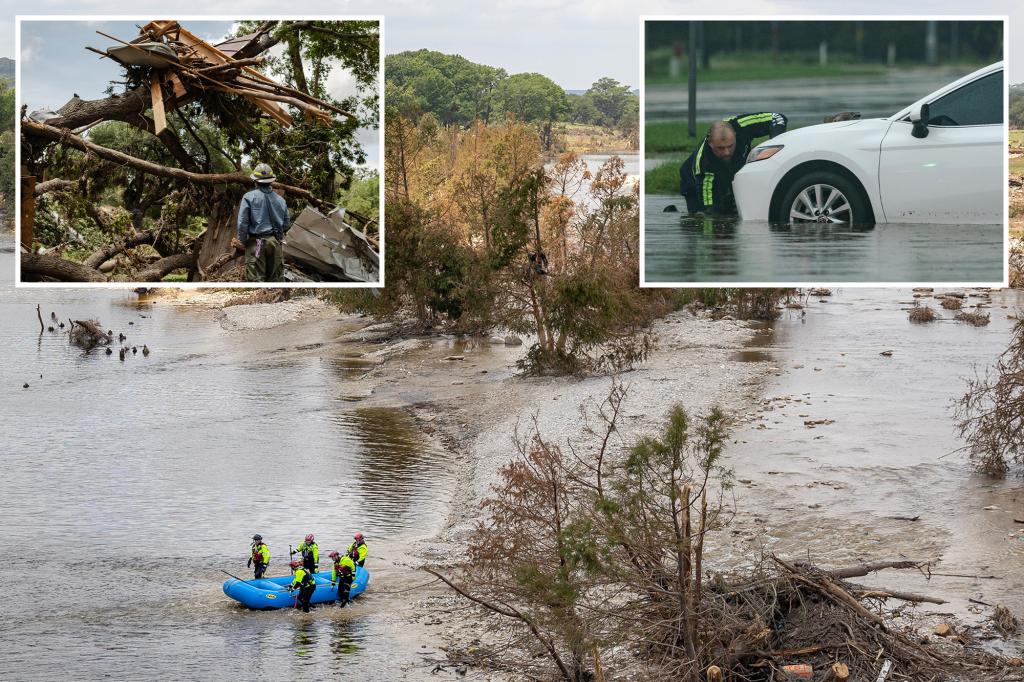Tremors of Change: The Impact of a Myanmar Earthquake on Bangkok’s Stability
A powerful earthquake in Myanmar has sent shockwaves across the region, particularly impacting the Thai capital of Bangkok. This event raises concerns about urban resilience and the interconnectedness of neighboring nations in the face of natural disasters. As we delve deeper into the implications of this seismic event, it becomes clear that the ripples of an earthquake can extend far beyond its epicenter, influencing urban stability, economic security, and regional cooperation.
The Earthquake: A Brief Overview
On October 3, 2023, a magnitude 6.5 earthquake struck near the border of Myanmar and Thailand, with its epicenter located approximately 100 kilometers north of Bangkok. The tremors were felt as far away as the Thai capital, causing alarm among residents and prompting emergency services to assess potential damage. Fortunately, early reports indicated minimal casualties and structural damage in both Myanmar and Thailand, but the psychological impact of such a natural disaster is profound.
The Immediate Effects on Bangkok
In an interconnected world, an earthquake in one country can reverberate through its neighbors. In Bangkok, the immediate response involved:
- Increased seismic activity monitoring by local authorities.
- Heightened public awareness and preparedness measures.
- Emergency drills held in schools and businesses to prepare for potential aftershocks.
Residents described the experience as unsettling, with many taking to social media to share their experiences. The event not only raised questions about the structural integrity of buildings in Bangkok but also highlighted the city’s vulnerability to natural disasters. Urban planners and policymakers are now faced with the challenge of reassessing their disaster preparedness strategies.
Urban Resilience: A Growing Concern
Bangkok, known for its vibrant street life and cultural landmarks, is also a rapidly growing metropolis. With a population exceeding 10 million, the city is a hub for commerce, tourism, and international trade. However, this growth comes with challenges, especially regarding urban resilience. The recent earthquake serves as a stark reminder that cities must be equipped to handle natural disasters.
Experts argue that urban resilience involves more than just building robust infrastructure; it requires:
- Community Engagement: Residents must be educated about emergency preparedness and response.
- Infrastructure Improvements: Buildings, roads, and bridges need to be retrofitted to withstand seismic activity.
- Collaborative Planning: Governments should work with NGOs and community organizations to develop comprehensive disaster response plans.
In the wake of the Myanmar earthquake, Bangkok’s local government is urged to reassess its infrastructure and disaster response strategies. Engaging community members in these discussions can foster a sense of collective responsibility and preparedness.
The Economic Implications for Bangkok
Natural disasters often have far-reaching economic consequences. The earthquake’s shockwaves not only affect immediate recovery efforts but also influence investor confidence and tourism. Bangkok, as a major regional economic center, faces potential challenges, including:
- Tourism Decline: Tourists may be hesitant to visit in the aftermath of an earthquake, impacting local businesses.
- Supply Chain Disruptions: The interconnectedness of regional economies means that delays in Myanmar can affect trade routes and logistics in Thailand.
- Increased Insurance Costs: Following a disaster, insurance companies may raise premiums, affecting both individuals and businesses.
However, there is a silver lining. The recent earthquake could spur investment in disaster-resistant infrastructure, creating jobs and improving safety for residents in the long run. Policymakers can capitalize on this moment to promote sustainable urban development.
Regional Cooperation: A Necessity
The earthquake also highlights the importance of regional cooperation in disaster response. Southeast Asian nations share geological characteristics that make them susceptible to earthquakes and other natural disasters. Collaborative efforts can enhance preparedness and response capabilities. Key areas for cooperation include:
- Joint Training Programs: Countries can share resources and knowledge to improve their disaster response strategies.
- Information Sharing: Establishing a regional database on seismic activity can help nations prepare for potential disasters.
- Policy Development: Governments can work together to develop policies that promote resilience and sustainability.
In the aftermath of the Myanmar earthquake, regional organizations like ASEAN can play a pivotal role in fostering dialogue and collaboration among member states. By working together, countries can create a more unified approach to disaster management.
Looking Ahead: A Call to Action
As Bangkok reflects on the recent earthquake in Myanmar, it is essential for city leaders, businesses, and residents to take proactive steps toward enhancing urban resilience. This can be achieved through:
- Investment in Infrastructure: Prioritize retrofitting buildings and improving public spaces to withstand future seismic events.
- Public Awareness Campaigns: Educate citizens about earthquake preparedness and response procedures.
- Community Engagement: Involve local communities in disaster planning and response efforts.
By embracing these strategies, Bangkok can transform the tremors of change into an opportunity for growth and resilience. The recent earthquake serves as a reminder that while nature can be unpredictable, our response to it can be grounded in preparedness, cooperation, and community strength.
Conclusion
The tremors from the Myanmar earthquake have indeed shaken Bangkok’s stability, but they can also be seen as a catalyst for positive change. As cities confront the realities of climate change and natural disasters, the focus must shift towards building resilient urban environments. By working together and learning from past events, Bangkok and its neighbors can emerge stronger, more united, and better prepared for whatever the future may hold.
See more Your Daily Weather



